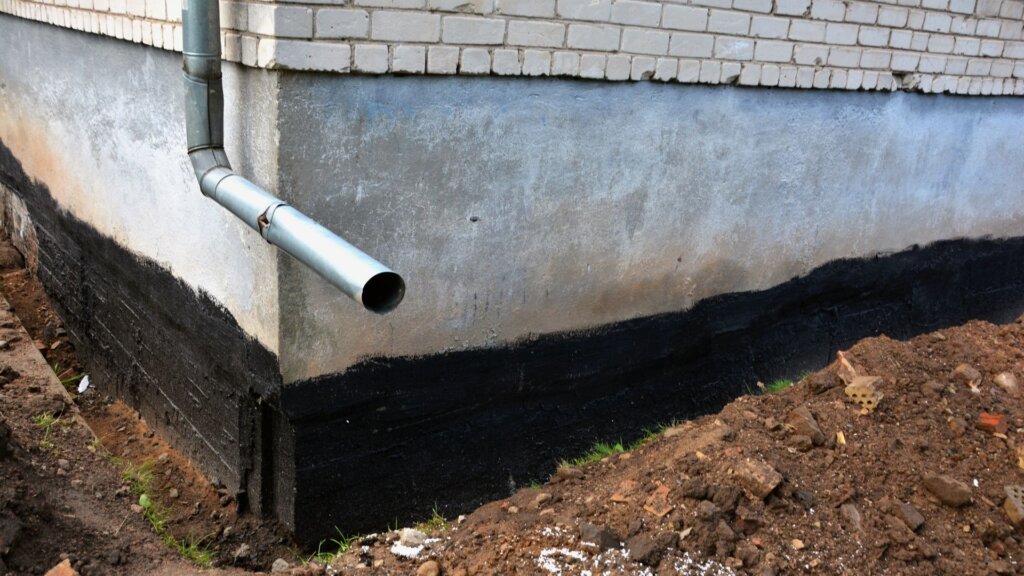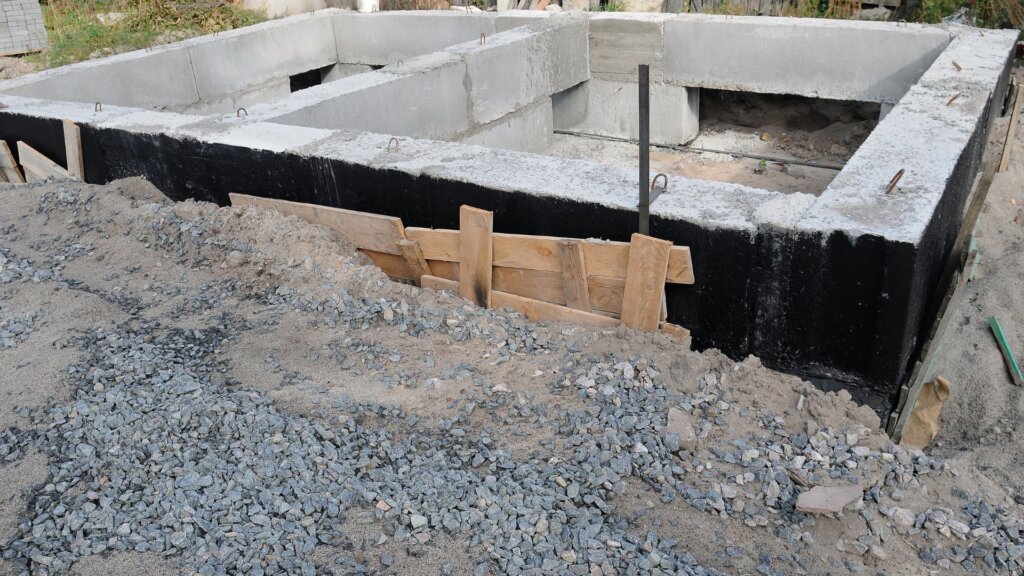
A basement foundation is crucial not only for your home’s structural integrity but also for enhancing its overall value and functionality. Whether you’re building a new home or considering foundation repair, understanding the costs involved is essential. So, How Much Does a Basement Foundation Cost? The price can vary depending on the type of foundation, with poured concrete being a common and durable choice. Some foundation types may be less expensive than others, but it’s important to prioritize long-term stability. Additional features like waterproofing can impact the total cost. By evaluating your options, you can make informed decisions that improve your home’s efficiency and resale potential.
How Much Does a Basement Foundation Cost in Boston, MA?
Understanding the cost structure is essential when planning for a basement. A basement foundation typically costs between $35 and $65 per square foot, but this varies depending on several factors.
For a 1,000-square-foot area, the total cost of a basement foundation can range from $25,000 to $100,000 or more, depending on the materials used, additional features, and labor costs. Let’s break this down to provide clarity:
| Foundation Size (sq. ft.) | Cost per Square Foot | Total Cost Range |
| 500 sq. ft. | $35 – $65 | $17,500 – $32,500 |
| 1,000 sq. ft. | $35 – $65 | $25,000 – $65,000 |
| 1,500 sq. ft. | $35 – $65 | $52,500 – $97,500 |
| 2,000 sq. ft. | $35 – $65 | $70,000 – $130,000 |
The table outlines the cost of a basement foundation based on its size and material. Homeowners pay between $35 and $65 per square foot, depending on the foundation type and location. For example, a 1,000-square-foot foundation could cost anywhere from $25,000 to $65,000, while a 2,000-square-foot space might range from $70,000 to $130,000. This cost variation also includes factors like labor, materials, and any additional features. Investing in a strong foundation enhances your home’s resale value and ensures long-term peace of mind. Additionally, proper foundation work can improve the overall landscape and stability of your property.
Key Considerations for Budgeting
- Labor Costs in Boston:
Labor rates can vary widely based on contractor experience and demand in the local market. Boston’s skilled labor may command higher rates than in less urban areas.
- Excavation and Site Prep:
Difficult terrain, sloped lots, or tight urban spaces can increase excavation costs, which may add $3,000 to $10,000 or more to the overall budget.
- Waterproofing and Moisture Control:
Installing drainage systems, vapor barriers, and sump pumps can cost between $2,000 and $10,000, depending on the system’s complexity.
- Custom Features:
Additional features like walkout entries, windows, or extra insulation can raise the overall cost, often by 10% to 30%.

Types of Basement Foundations and Their Costs
When considering a basement foundation, understanding the different types and their associated costs is essential. Here is an overview:
| Type of Foundation | Average Cost per sq ft | Description |
| Slab Foundation | $4 – $8 | A cost-effective option offering a flat concrete base. Ideal for areas with minimal frost depth. |
| Crawl Space Foundations | $6 – $18 | Provides a small space between the ground and the home, allowing for better ventilation. |
| Concrete Basement | $35 – $65 | The most common type, offering durability and versatility. |
| Daylight or Walkout Basement | $50 – $90 | Includes an exterior entrance, ideal for sloped lots. |
| Wood Foundations | $25 – $40 | A lightweight alternative with excellent insulation but lower durability. |
Slab Foundation
A slab foundation involves pouring a solid concrete slab directly onto the ground, making it one of the most straightforward and budget-friendly options for home foundations. This method eliminates the need for a crawlspace or basement, making it suitable for flat, stable terrains.
However, slab foundations are less effective in colder climates like Boston, where frost heave can cause cracking and structural damage over time. Despite this limitation, slab foundations remain a popular choice for structures such as garages, sheds, or outbuildings due to their affordability and simplicity.
Crawl Space Foundations
Crawl space foundations elevate a home slightly off the ground, creating a small, accessible space underneath the building. This design improves ventilation and provides a convenient area to house plumbing, electrical, and HVAC systems.
Crawl space foundations are particularly advantageous in areas prone to moisture or flooding, as they help protect the home’s main structure. Proper insulation and ventilation of the crawlspace are crucial to prevent mold and moisture issues, making it a practical and moderately priced option for homes in diverse environments.
Concrete Basement
A concrete basement is a durable and versatile foundation choice, offering substantial space that can serve as storage, recreational areas, or even fully livable rooms. Concrete basements are particularly beneficial in urban areas like Boston, where maximizing space is often a priority.
While they are more expensive than other foundation types, the added utility and property value often justify the investment. To ensure longevity and functionality, proper waterproofing systems, such as drainage tiles and sump pumps, are essential to protect against water intrusion and moisture damage.
Daylight or Walkout Basements
Daylight or walkout basements are specifically designed for sloped lots, incorporating large windows or exterior doors that open directly to the outside. This type of foundation not only enhances the aesthetic appeal of the space but also creates bright, functional living areas.
Due to the complexity of excavation and structural reinforcement, daylight basements tend to be among the most expensive foundation types. However, their ability to blend functionality with natural light makes them a desirable option for homeowners seeking to expand their usable living space.
Wood Foundations
Wood foundations are a less common but cost-effective alternative to traditional concrete foundations. Constructed with treated wood panels, they are lightweight, easy to install, and provide excellent insulation.
While wood foundations are more affordable and eco-friendly, they require diligent maintenance to prevent issues like rot, insect damage, and water infiltration. With proper treatment and care, wood foundations can be a practical option for certain projects, but they are generally less durable compared to concrete or other materials.
Factors Affecting Basement Foundation Costs
Understanding the factors influencing basement foundation costs is crucial for accurate budgeting.
Soil and Site Conditions
The condition of the soil and the topography of your lot significantly impact excavation and preparation costs. In Boston, MA, where soil types can vary, poor soil stability or a sloped lot may require additional work, such as soil reinforcement, grading, or retaining walls. These adjustments can increase labor and material costs, making site evaluation a vital step in the process.
Waterproofing
Effective waterproofing is essential to protect your basement foundation from water damage and ensure longevity. Systems like drainage tiles, sump pumps, and waterproof membranes prevent moisture infiltration, which is particularly important in Boston’s climate. While these measures add to the upfront cost, they save money in the long run by preventing issues like mold, mildew, and structural damage.
Permits and Inspections
Building a basement foundation in Boston requires compliance with local building codes, including permits and inspections. These regulations ensure that your foundation meets safety and quality standards, but they also add to the project’s cost. Fees for permits and inspections vary depending on the scope of the work and the specific requirements in your area.
Custom Features
Adding custom features to your basement, such as insulation, egress windows, or external access (e.g., walkout doors), enhances functionality and comfort. However, these upgrades increase material and labor costs. For instance, walkout basements on sloped lots may require additional excavation and structural modifications, which can substantially impact the overall budget.
Final Words
So, how much does a basement foundation cost? Building a basement foundation is an important decision that offers lasting benefits, such as added living space, improved home functionality, and increased property value. Each foundation type, whether a simple slab, a crawlspace, a durable concrete base, a walkout basement, or a wood foundation, has advantages and costs.
When planning, it’s essential to consider the basement costs for various types and whether you plan for a finished basement or unfinished space. Moisture problems and energy efficiency should also be factored in. Understand what you can expect to pay based on your project needs. Understanding these options and their associated expenses is crucial for making an informed choice that aligns with your home’s design and long-term needs. Proper planning, considering local building codes and waterproofing basement wall requirements, ensures your investment is both practical and durable. No matter the type of foundation you choose, a well-constructed basement adds value and utility to your home, making it a wise and impactful addition for homeowners in Boston and beyond.
Frequently Asked Questions
Is a basement foundation worth it?
A basement foundation can be a valuable investment depending on your needs. It provides extra living or storage space and can increase the resale value of your home. However, the decision depends on factors such as your soil conditions, the type of foundation, and the specific requirements of your area. For example, in Boston, MA, where labor and materials can be higher in cost due to demand, the upfront cost may be higher but could be worthwhile in terms of long-term property value and additional usable space.
How much does a 1200 square foot basement cost?
The cost of a 1200 square foot basement foundation in Boston, MA typically ranges from $25,000 to $45,000, depending on various factors. Prices vary per linear foot and can be impacted by factors such as the type of foundation (e.g., slab, crawlspace, or full basement), soil conditions, and whether additional work (like excavation or drainage) is required. The higher labor costs in Boston can significantly increase your final bill, especially for more complex projects.
Average cost of basement foundation repair
The average cost of basement foundation repair in Boston, MA can vary greatly depending on the condition and type of the existing foundation. On average, homeowners spend between $2,000 and $8,000 for repairs. This cost is usually per linear foot, with soil conditions, the extent of damage, and the type of foundation all playing a role. Significant repairs to cracked or bowing walls or addressing moisture issues might drive costs higher. If the foundation issues are severe, such as needing underpinning or major structural work, the price could exceed $10,000.
How much does a new basement foundation cost?
A new basement foundation in Boston, MA typically costs between $15,000 and $50,000, depending on the size of the basement, the type of foundation, and the soil conditions. The cost is often calculated per linear foot, and prices can vary based on whether the foundation is a simple slab or requires more complex excavation and wall construction. Boston’s higher labor costs and varying soil conditions may also significantly increase the cost. Additional costs can arise from the condition of the land and any necessary drainage systems to prevent flooding or moisture problems.
Service Request
Fill out your basic contact information, and a member of our team will reach out to you shortly to discuss your project and answer any questions.
